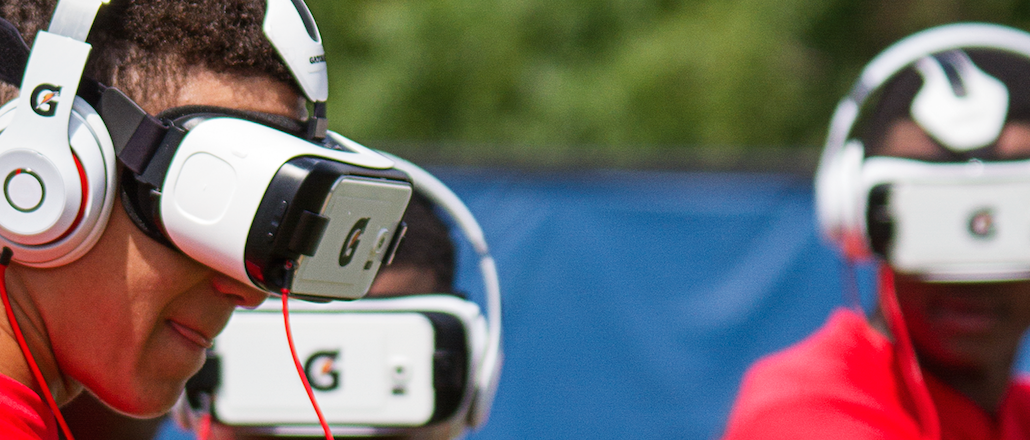
Gatorade is stepping up to the plate with its first foray into virtual reality.
Gatorade Virtual Reality, which launched today, puts users in the body and mind of MLB all-star Bryce Harper as he bats for the Washington Nationals. Using a VR headset and headphones, the user feels like she is standing in the batter’s box in Nationals Park as several pitches are thrown, with a recording of Harper’s “thoughts” in his voice coming through headphones.
A combination of live action video, computer-generated imagery and binaural audio (which sounds differently depending on the direction you move your head) creates an immersive, first-person experience. “We wanted to let you experience what’s going through his mind when he sees a curveball versus a fastball,” said Kenny Mitchell, senior director of Consumer Engagement at Gatorade.
Created with OMD’s Zero Code and The Mill, the project took 14 GoPro cameras and two days to shoot. “Shooting was the easiest part even though it wasn’t that easy,” said Dario Riciti, director of Zero Code. The post-production work and creating a virtual Harper from the athlete’s real-life movements took an additional three months.
Gatorade joins the likes of Marriott and Patrón as the latest brand to experiment with VR as the technology continues to become more mainstream. However, it faces the same challenge in bringing its experience to the masses: VR hardware remains uncommon and usually costs around $200 (the exception is Google Cardboard, which retails around $30 and turns your phone into a headset).
Riciti addressed this problem saying that brands’ first order of business is learning how to create the content for VR. The next step is learning how to manage the distribution, which he said will become easier as the first wave of consumer VR headsets hit shelves next year.
While Gatorade’s full experience requires this hardware, a more mass version can be viewed on YouTube 360. The brand was recently one of the first to try Facebook’s new 360-degree ads. Mitchell said there is the possibility of taking such an experience to ballparks and other sporting events in the future.
“We want to do things that are new and different,” said Mitchell. “We’re not doing VR for VR’s sake.”
More in Marketing

YouTube’s upmarket TV push still runs on mid-funnel DNA
YouTube is balancing wanting to be premium TV, the short-form powerhouse and a creator economy engine all at once.

Digiday ranks the best and worst Super Bowl 2026 ads
Now that the dust has settled, it’s time to reflect on the best and worst commercials from Super Bowl 2026.

In the age of AI content, The Super Bowl felt old-fashioned
The Super Bowl is one of the last places where brands are reminded that cultural likeness is easy but shared experience is earned.





